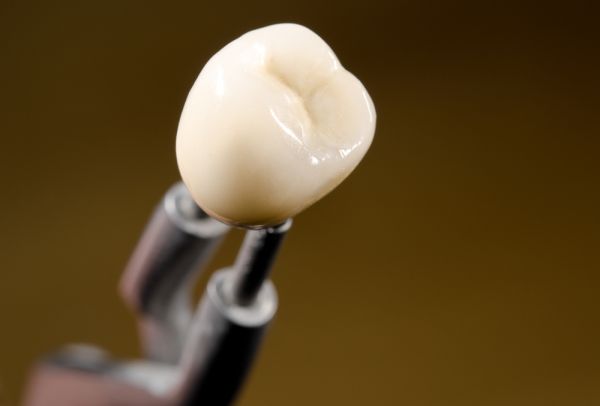What You Should Know About Different Dental Crown Materials

A dental crown is one of the most popular cosmetic or dental restorations. They strengthen broken, cracked, or decayed teeth. Dentists recommend dental crowns for different reasons, but you will be surprised to discover that crowns differ in many ways, including cost and appearance.
This article focuses on the different materials used in making dental crowns, which will guide you when choosing the most suitable material for your smile.
Types of dental crown materials
The following are the types of materials used for making dental crowns:
Gold
The gold alloy used to be the most popular crown material, before the introduction of other materials. Since pure gold is not strong enough, dental labs use alloy. The gold alloy has many advantages over other types of dental crown materials. Gold is malleable and does not need to be thick to provide support. Only a small part of the enamel is shaved for placement. They are also highly durable and less likely to cause irritation to the mouth tissues.
The only drawback of gold crowns is the appearance – they are more suitable for back teeth where they are less visible.
Porcelain
No other material is comparable to porcelain for achieving cosmetic restorations. Porcelain has the translucence of natural teeth. The material is fully customizable to match the shape and size of the original teeth. Porcelain is strong, and it will take a forceful bite to damage the crown. It also decreases teeth sensitivity and makes it convenient to enjoy cold and hot meals alike.
The drawback of porcelain is that it is somewhat harder than the natural enamel, which means that it may cause minor damages to the nearby teeth when chewing or grinding the teeth. A porcelain crown is not ideal for patients who grind or clench their teeth. They are also thicker than gold alloys, which means a good part of the original tooth structure will be shaved off for placement.
Porcelain fused to metal
These crowns are produced by fusing metal with porcelain. This concept is to combine the appeal of porcelain with the strength of metal alloys – usually gold. The lower layer of the crown is made of gold, and the upper layer is made with porcelain. Thus removing the unsightliness of full gold crown.
This crown is highly durable but has its drawbacks. The metal layer underneath can discolor the gum line and make it appear dark or greyish. The gold layer also removes the translucency of the crown. This combination, however, is suitable for patients struggling with teeth grinding but do not want an all-gold crown.
Zirconia
Zirconia-based crowns solve the problem posed by gold and porcelain crowns. Derived from the metal zirconia, this crown copies the properties of ceramic. It is incredibly strong and provides a solid base for a porcelain finish. They are fully customizable to look like the real tooth, so much it will be hard to tell the difference.
Composite resin
This type of material is the least expensive option available for making crowns. They are not so durable and have to be replaced regularly. Composite resin crowns are more ideal for creating temporary crowns before the permanent crown is ready.
In conclusion
If the dentist has recommended getting a dental crown, discuss with them to know the material that they will use and what is needed from you to ensure a successful procedure.
Request an appointment here: https://www.drroberttamaki.com or call Dr. Robert B Tamaki, DDS at (310) 402-0156 for an appointment in our Los Angeles office.
Check out what others are saying about our services on Yelp: Read our Yelp reviews.
Related Posts
Interested in professional teeth whitening after braces? Having braces removed can be exciting for patients who are eager to show off their newly-straightened smiles. Most people want to ensure that their smile looks its absolute best, especially once braces have been removed. One way to help achieve that is through a professional teeth whitening appointment.Professional…
Dental bonding is a quick, affordable fix that dentists use to correct a wide variety of dental problems. Not only is dental bonding useful as a restoration, it also has cosmetic applications. The fact that bonding is easy to use makes it a popular option with dentists. This is how it works.Dental bonding takes the…
Dental implants are small, titanium screws placed into the jawbone where a tooth was removed. The implant fuses with the jawbone over time and supports a crown, bridge, or denture. This article will review six warning signs that it is time to inquire about dental implants.Many people (adults) postpone receiving treatment after losing a tooth…
Having dental implants can correct tooth loss, which is the primary reason for getting these dental replacements. Other reasons for getting them may determine if you are a good candidate for this treatment. Knowing if you are a good candidate for dental implants can help you prepare well for your next appointments. Here are the…
